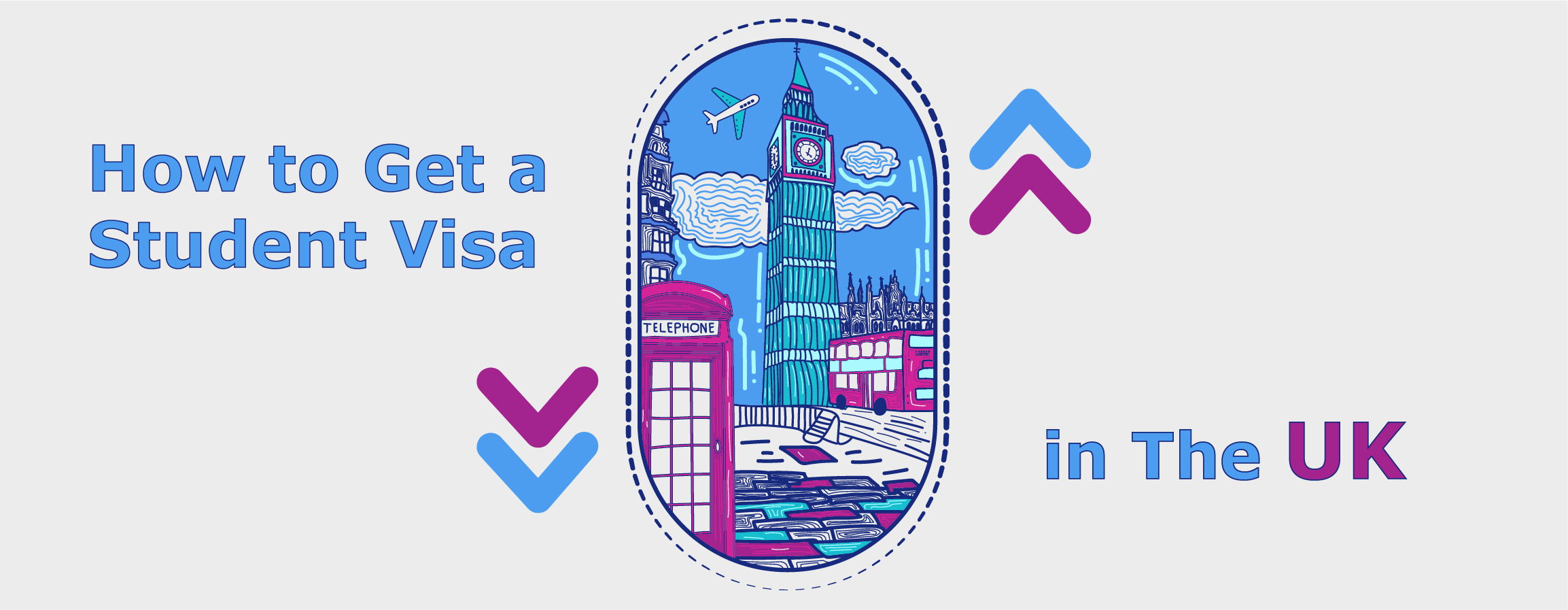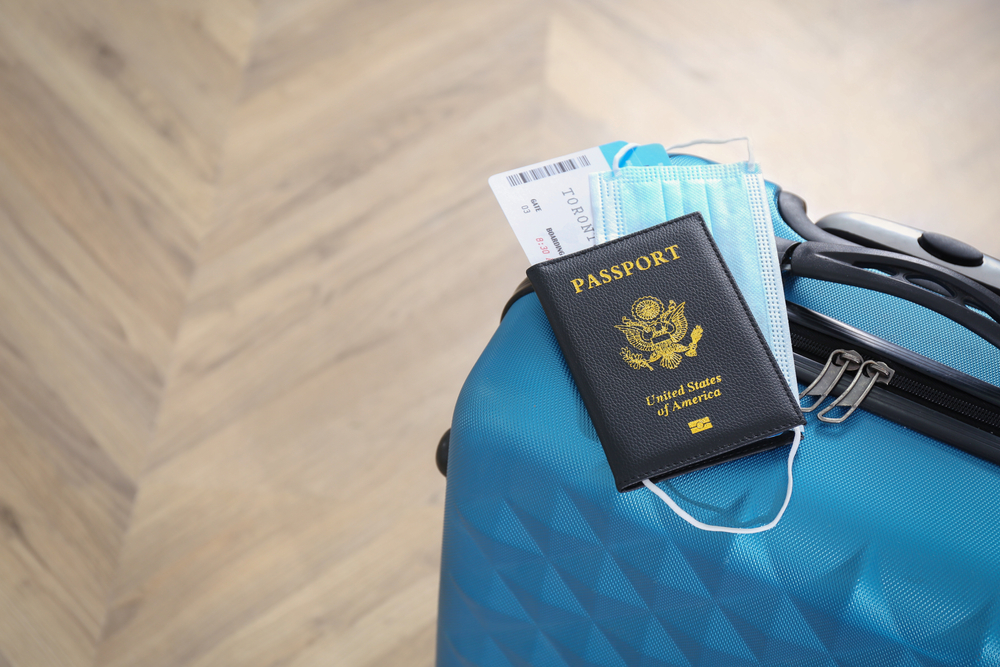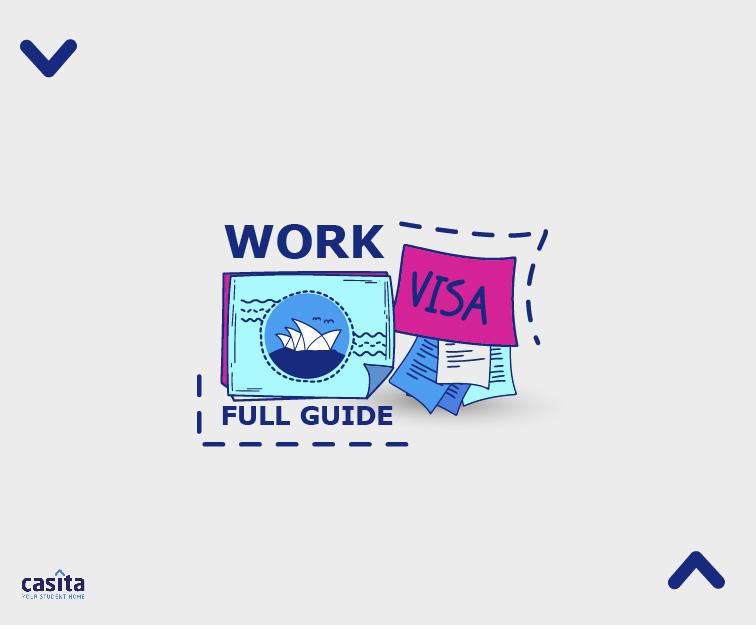How to Get a Student Visa in The UK
Travel Preparation
5 mins read
Share

Updated at: 25 November, 2025
Published at: 28 May, 2021
By Hadeel Hossam
How to Get a Student Visa in The UK
Travel Preparation
5 mins read

Updated at: 25 November, 2025
Published at: 28 May, 2021
By Hadeel Hossam
Share
Have you always dreamed of studying abroad in the UK? It’s a common goal among many students from all over the world. Studying in the UK means receiving excellent education and having highly qualified lecturers teaching you and setting you on the path to success. To make this dream a reality, you will need to go through some necessary steps. If you’re wondering how to get a visa to study in the UK, here is a guide to get you started.
Types of Student Visas In The UK
Before you start the process of getting a student visa in the UK, you need to be aware of which visa you need. There are three types of UK student visas each for a different purpose and they are:
1. A Child Student visa, applicable if you are under 18 years old.
2. A Short-Term study visa, applicable if you wish to study English in the UK via short courses. It is valid for up to 6 months for most short courses and can be extended to 11 months for English language courses.
3. A Student visa for university students above 18 years.
UK Student Visa Requirements
A valid passport.
A recent photograph.
For a Child student visa, the student must be aged between 4-17 years and he/she must prove they will be studying at an independent school in the UK.
For a student visa, the student must have a licensed tier-4 student sponsor.
The student must prove they have access to enough money to pay for their course and support themselves in the UK.
Proof of the ability to speak, read and write in English.
Proof of parental or guardian consent to study in the UK if the student is under 18 years old.
Students from certain countries will be required to include Tuberculosis test results.

How to Get A UK Student Visa?
Now that you are aware of the types of visa you need to study in the UK, you need to know when to apply, how to apply and the UK student visa fees.
1. When to Apply
If you are applying from the UK, you can start the process 3 months before your course start date and before your current visa expires. The course should begin within 28 days of your current visa expiring. A decision on your visa application is made within 8 weeks.
If you are applying from outside the UK, you can start the process 6 months before your course start date and you will receive a decision within 3 weeks.
2. Duration of Stay and Costs
For Child Student Visas, if you were under 16 at the time of application, your course length can be up to 6 years plus 4 months afterwards. If you were 16 or 17 at the time of application, your course length could be 3 years plus 4 months afterwards. You can travel to the UK up to a month before your course start date. Child student visas cost £348 from outside the UK and £475 to switch to a Child Student visa from inside the UK.
For Short-term Study Visas, you can stay in the UK for the course length with an extra 30 days provided that your stay is no longer than 11 months. There is a £470 healthcare surcharge in the online application for NHS purposes. A short-term study visa costs £186 plus £470 for the healthcare surcharge.
For a student visa, the length of your stay depends mainly on what you will study and the length of your course. If you’re taking a degree-level course, you can stay in the UK for up to 5 years. If it’s a below-degree level course, you can stay in the UK for up to 2 years. There is an option to extend your visa if you meet the eligibility criteria. If your course length is 6 months or less, you can travel to the UK up a 1 week before it starts. If the course lasts more than 6 months, you can arrive in the UK up to a month before it starts. The student visa costs £348 when applying from outside the UK and £475 to apply from the UK or extend a current one. There is also an additional healthcare surcharge fee paid during your application process.
3. Preparing Financial Documents
If you are applying for a student visa from the UK and have been living in the UK for 12 months or more, you will be exempt from meeting the financial requirements. You do not need proof of financial status if you are applying as a student union sabbatical officer or as a postgraduate doctor or dentist on a recognised foundation programme. There is also a list of countries where students don't need to provide financial evidence or evidence of academic qualifications for their visa application.
Those applying from outside the UK will need to prepare evidence of funding for tuition fees and living expenses along with student accommodation. If you are being funded by a parent or guardian, you must provide bank statements showing they have held the required funds in your account for at least 28 days. The last bank transaction should be no more than 31 days before you submit your visa application.
If you are funded by an official sponsor, you’ll need an official sponsorship letter from them that includes all information required by UKVI. The funding evidence should include tuition fees for at least one academic year of the student’s course or the full course. Moreover, if your course is in London, you’ll need evidence of having living expenses of £1,334 per month for up to 9 months. If your course is outside London, you’ll need £1,023 per month for up to 9 months.

Do’s And Don’ts Of UK Student Visas
There are certain rules and regulations under your UK student visa that you are obliged to follow, and they differ according to each visa type.
1. Child Student Visa
Do
Work part-time if you are 16 and over.
Work full time on vacations if you are 16 and over.
Work as an intern as part of your course as long as it is not more than 50% of your course.
Don’t
Choose to study at a higher or further level education institution or an academy or a local authority-funded school (maintained school).
Take a permanent full-time job or become self-employed.
Receive public funds.
Take a job as an entertainer or professional sportsperson.
Apply for a settlement scheme.
Bring family members. They can apply for a Parent of a Child Student visa.
2. Short Term Study Visa
Don’t
Extend the visa.
Study any other courses or change the course you applied with during your stay in the UK.
Apply for public funds or the State Pension.
Bring family members on your visa.
Take any work whether it’s paid, unpaid, or work placements under your course.
Student Visa
Do
Work as a student union sabbatical officer.
Apply for work after determining conditions based on what you’re studying and whether it’s during terms or vacations.
Bring your partner and children to the UK on your visa as dependants.
Don’t
Study at an academy or a local authority-funded school (maintained school).
Become self-employed or work as a professional sportsperson or sports coach.
Claim pensions or public funds.
In a nutshell, the steps you need to take to get a visa to study in the UK are
Apply to an educational institution and receive your acceptance letter
Prepare financial documents and other supporting documents
Complete the application form and pay its fees
Submit your online application, your documents and your biometrics.
Finally, wait for your visa to study in the UK. The process can take some time; however, it will all be worth it once you start your study journey and live in a student hall in the UK. Furthermore, once there, don’t forget to apply for a driver’s licence and open a bank account to make your life easier.
Travel Preparation
By Hadeel Hossam
Share
Travel Preparation
Updated at:
Published at:
By Hadeel Hossam
Share


